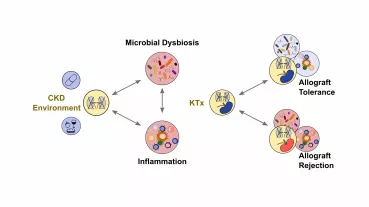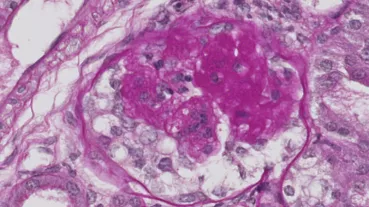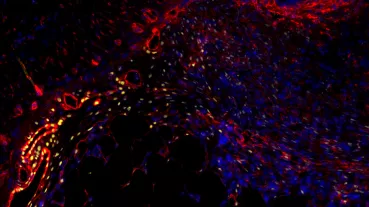Abdominal Area, Kidneys & Pelvis
|
The autotaxin-lysophosphatidic acid-axis as corticosteroid target in the pathophysiology of nephrotic syndrome
Funding line:
Else Kröner Memorial Fellowships

Dr. Tilman Jobst-Schwan, MD
(© Privat)
Nephrotic syndrome is a kidney disease characterized by protein loss in the urine, water retention and changes in blood lipids. Steroids are used to treat this disease without knowing exactly how they work in the kidney. Lysophosphatidic acids are a class of fat molecules that circulate in the blood, and also bind as signaling molecules to receptors in the kidney. We think that in nephrotic syndrome the composition of the lysophosphatidic acids in the blood is changed and that steroids have a positive effect on these changes. This restores the correct signal transmission in the kidney and thus its function. We hope that our experiments will help us better understand the disease nephrotic syndrome and develop more targeted therapies.







